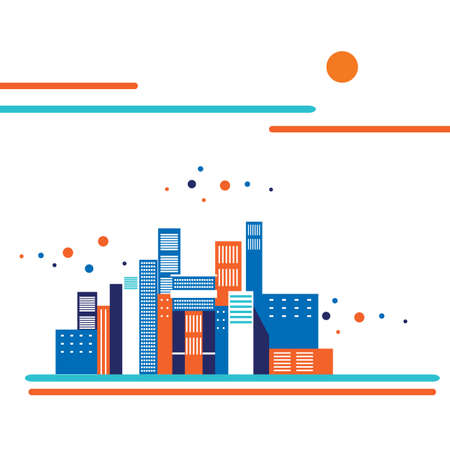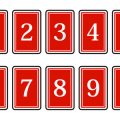1. Understanding Urbanisation and Rural Life in India
India is a land of vibrant contrasts, where the bustling urban centres and the tranquil rural villages coexist, shaping the nation’s social and cultural fabric. Urbanisation in India has accelerated rapidly over recent decades, with cities like Mumbai, Delhi, and Bengaluru transforming into economic powerhouses that attract millions seeking better opportunities. In stark contrast, rural areas remain deeply rooted in tradition, offering a slower pace of life that values community bonds and age-old customs. These differences are not merely geographical—they permeate every aspect of daily living. City dwellers often embrace modern technology, global influences, and fast-paced routines, while village residents tend to preserve local languages, festivals, and agricultural livelihoods. The economic divide is equally pronounced: urban populations generally enjoy higher incomes and access to superior infrastructure, whereas rural communities may struggle with limited resources but possess a profound connection to nature and heritage. Social structures also differ; urban environments encourage individualism and nuclear families, while rural societies emphasise collective responsibility and extended familial ties. These contrasting lifestyles highlight the dynamic interplay between progress and tradition in India—a theme that Jyotish (Vedic astrology) explores by revealing how planetary influences shape both personal destinies and broader social trends.
2. Jyotish Perspective: Charting Social Change
In India, the currents of urbanisation and rural continuity are not just economic or demographic trends—they hold deep spiritual and cosmic significance when viewed through the lens of Jyotish, or Vedic astrology. According to Indian classical texts like the Brihat Samhita and Parashara Hora Shastra, societal shifts between rural and urban spaces reflect larger cosmic cycles and collective karma. Jyotish teaches us that planetary transits and graha (planet) strengths in a nation’s chart can mirror patterns of migration, changes in community structure, and even the rise of new urban centres.
Urban vs Rural: Astrological Indicators
Jyotish attributes certain planets and houses with influences over social environments. For example, Saturn (Shani) often represents agriculture, tradition, and the slower pace of rural life. In contrast, Mercury (Budh) and Venus (Shukra) are associated with commerce, communication, and the vibrancy of urban lifestyles. The fourth house is linked with homeland and roots—rural stability—while the seventh and tenth houses denote external relations and public life, often connected to urban expansion.
| Astrological Factor | Rural Life | Urban Life |
|---|---|---|
| Dominant Planet | Saturn (Shani) | Mercury (Budh), Venus (Shukra) |
| Main House Focus | 4th House (Home, Land) | 7th & 10th Houses (Society, Public Life) |
| Karmic Themes | Ancestral Duty, Preservation | Innovation, Adaptation |
| Collective Trends | Stability, Continuity | Change, Progression |
Karma of Migration: What Jyotish Reveals for India
The movement from villages to cities is seen as a response to changing dashas (planetary periods) both individually and collectively. When national charts indicate strong influences from Rahu or Mercury, mass migrations toward urban centres intensify. However, classical texts also caution about losing dharmic balance—urbanisation may bring prosperity but can also erode traditional values rooted in rural Bharat. Jyotish thus encourages mindful adaptation: harnessing the opportunities of city life while honouring one’s roots.
Cultural Reflection: Urbanisation in Indian Jyotish Lore
The great seers remind us that no matter where we reside—amidst city lights or village fields—the true journey is towards inner harmony. Urbanisation and rurality are two sides of the same coin in India’s astrological destiny; understanding their interplay helps us embrace change without losing our essence.

Rising Aspirations and Migration Trends
The heartbeat of India’s social transformation is most palpable in the movement of people—especially the youth—from villages to cities. In every corner, from remote hamlets in Uttar Pradesh to coastal towns of Kerala, there’s a growing surge in rural-to-urban migration. This tide isn’t just about physical relocation; it’s driven by rising aspirations, dreams woven with hopes for better job opportunities, access to quality education, and the allure of modern amenities that urban centres promise.
The Quest for Opportunity
It is no secret that cities like Mumbai, Bengaluru, and Hyderabad have become magnets for young Indians seeking professional growth. The promise of steady income and exposure to global cultures draws lakhs of people each year. Many families invest their life savings to send their children to city colleges or coaching institutes, believing that education is the path towards a more secure and dignified future. Yet, this migration is not just an economic decision; it is deeply emotional—a leap towards fulfilling both personal ambitions and family expectations.
Cultural Values in Transit
While migrants adapt to city life—embracing new languages, cuisines, and work cultures—they seldom leave behind their deep-rooted values. The traditions of respecting elders, celebrating festivals like Diwali and Holi with community fervour, and seeking guidance from Jyotish (Vedic astrology) remain integral. These rituals serve as anchors in the fast-paced urban environment, providing comfort and continuity amidst change. Often, even in high-rise apartments or PG accommodations, you will find small mandirs (temples) and families coming together for evening aartis.
Jyotish Insights: Navigating Aspirations
From a Jyotish perspective, periods marked by Rahu or Saturn’s influence often coincide with heightened restlessness and the urge to seek new horizons. Such planetary transits are believed to fuel ambition and spark migratory trends. However, the wisdom of Jyotish also reminds us that true growth involves harmonising material pursuits with spiritual grounding—a lesson migrants continually negotiate as they build new lives while staying connected to their origins.
4. Challenges and Blessings: Urban vs. Rural Realities
India’s journey between its bustling cities and peaceful villages is a tale as old as time, filled with both thorns and blossoms. As the Hindi saying goes, “Jahan daal daal par sone ki chidiya karti hai basera, woh Bharat desh hai mera”—India is where golden birds nest on every branch, signifying abundance in diversity. Yet, this abundance comes in different forms for urban and rural dwellers. Let us look deeper into the day-to-day realities, drawing from local stories, folk wisdom, and lived experiences.
Urban Life: A Double-Edged Sword
In the cities, opportunities seem endless—better jobs, education, and healthcare beckon many from small towns and villages. But this promise often comes with a price. Overcrowded local trains in Mumbai or Delhi’s relentless traffic jams are modern parables of endurance. The Malayalam proverb “Kakka kulichal kokkakumo?” (Can a crow become a crane by bathing?) reminds us that appearances can be deceiving; urban glitter often hides stress, isolation, and fierce competition.
Rural Living: Simplicity with Its Own Struggles
The rural heartlands offer simplicity and community bonds that city life rarely matches. Here, the Tamil saying “Vandhaalum vallavan; poga villaiyenna?” (Even if you come with nothing, you are strong; why leave?) resonates deeply—villagers find strength in togetherness and self-sufficiency. However, challenges like lack of infrastructure, limited access to quality education and healthcare persist.
Comparing Challenges and Blessings
| Urban India | Rural India | |
|---|---|---|
| Main Challenges | Stressful lifestyle, pollution, high living costs, social isolation | Poor infrastructure, limited job options, inadequate healthcare/education facilities |
| Blessings | Diverse opportunities, exposure to cultures, advanced amenities | Tight-knit communities, natural environment, slower pace of life |
| Cultural Wisdom | “Dilli door hai”—The road to success is long and uncertain | “Gaon ki mitti me sukoon hai”—There’s peace in village soil |
| Real-Life Example | A young engineer moves to Bangalore for IT work but misses his home festivals in Bihar | A farmer’s daughter excels at school but must travel 10 km daily for higher studies |
The Jyotish Lens: Destiny Intertwined with Place
Jyotish (Vedic astrology) teaches that each soul’s journey is shaped by time and place—Kaal aur Desh ka samay mahattvapurn hai. Whether one thrives in a city or finds contentment in a village often reflects deeper karmic patterns. Just as no two horoscopes are alike, the blessings and battles of urban and rural life are unique to each individual’s path. Embracing both worlds’ teachings can lead us closer to harmony—within ourselves and our society.
5. Personal Growth Amidst Social Change
As India experiences rapid urbanisation, many individuals find themselves caught between the traditional roots of rural life and the fast-paced expectations of city living. This journey from village to city, or vice versa, is not merely a physical transition—it deeply influences personal identity, emotional well-being, and one’s sense of belonging within a community.
Identity in Transition
The move from rural simplicity to urban complexity often triggers self-reflection. In rural areas, identity is closely tied to family lineage, agricultural heritage, and cultural rituals passed down through generations. Urban environments, on the other hand, encourage individuality, career ambitions, and exposure to diverse perspectives. Jyotish (Vedic astrology) teaches that our birth chart reflects inherent tendencies—some may naturally adapt to new environments while others feel rooted in tradition. Understanding your own planetary influences can provide clarity during such transitions, helping you honour both your origins and your aspirations.
Emotional Well-being: The Urban-Rural Dichotomy
The emotional impact of moving between rural and urban contexts is profound. Rural life offers close-knit relationships and a slower pace, fostering inner peace but sometimes limiting opportunities for personal growth. Urban life brings excitement and possibility but can also lead to isolation or stress due to its competitive nature. Jyotish wisdom suggests paying attention to the Moon’s placement in your chart—symbolising the mind and emotions—to navigate these changes mindfully. Practising grounding rituals, whether it’s morning puja in a village temple or meditation amidst city noise, helps maintain emotional balance.
Community Connections: Bridging Two Worlds
Community support systems differ vastly between rural and urban settings. Villages thrive on collective responsibility; cities promote independence yet offer global networks. Many Indians today find themselves building hybrid communities—maintaining ties with their ancestral villages while forging new bonds in cosmopolitan circles. Jyotish encourages us to honour Saturn’s lessons of discipline and Venus’s teachings on relationships as we build bridges between old and new social circles.
Jyotish Guidance for Personal Growth
Jyotish offers personalised insights into how one may best flourish during social change. By consulting your horoscope, you can identify favourable periods for relocation or professional advancement as well as times for introspection and self-care. Embracing both the wisdom of rural traditions and the opportunities of urban life allows for holistic personal growth—a uniquely Indian journey shaped by ancient guidance and modern realities.
6. Embracing the Duality: Harmonising Tradition and Progress
India’s story is one of contrasts—a vibrant dance between the old and the new, the sacred and the modern. As urbanisation rapidly shapes our skylines and rural life preserves the heart of our traditions, Jyotish (Vedic astrology) offers unique wisdom for navigating this duality. Rather than seeing urban and rural realities as rivals, Jyotish encourages us to embrace both, weaving them together for a more harmonious and fulfilling Indian life.
The Wisdom of Roots
In our villages, we find the strength of community, age-old customs, and timeless values that have nurtured generations. Jyotish reminds us that our birth charts are rooted in our ancestry—the karmic patterns passed down through family, land, and tradition. Holding on to these roots grounds us, offering a sense of belonging even amidst rapid change.
Opportunities in Modernity
At the same time, cities open doors to growth—education, innovation, global connections, and technological advancement. Urbanisation brings exposure and freedom, allowing dreams to be realised beyond what was once possible in rural confines. The planets’ movements signify times for expansion; similarly, embracing urban opportunities can help us fulfil our potential while remaining anchored in who we are.
Jyotish Guidance for Balance
Jyotish teaches us about balance—between Rahu’s ambition and Ketu’s detachment, Saturn’s discipline and Jupiter’s optimism. It suggests that true progress lies not in abandoning tradition or resisting change but in harmonising both energies within ourselves. By honouring festivals at home while excelling in metropolitan careers, by practising yoga amid city noise or cherishing family rituals during busy weeks, we bring ancient wisdom into contemporary contexts.
A Holistic Indian Way of Life
To all Indians—whether you call a bustling metro or a quiet village home—let Jyotish inspire you to walk this path of integration. Celebrate your heritage while embracing new horizons; let each choice be guided by self-awareness and cosmic timing. In this way, India’s future will shine brightest—not by favouring one side over another, but by harmonising our diverse strengths into a truly holistic way of life.

